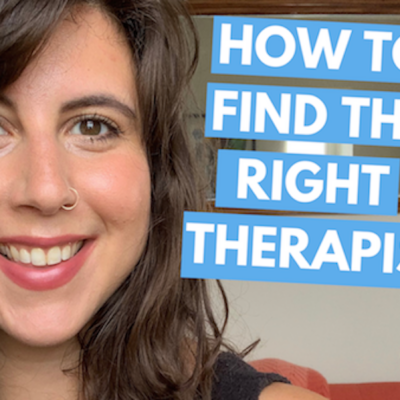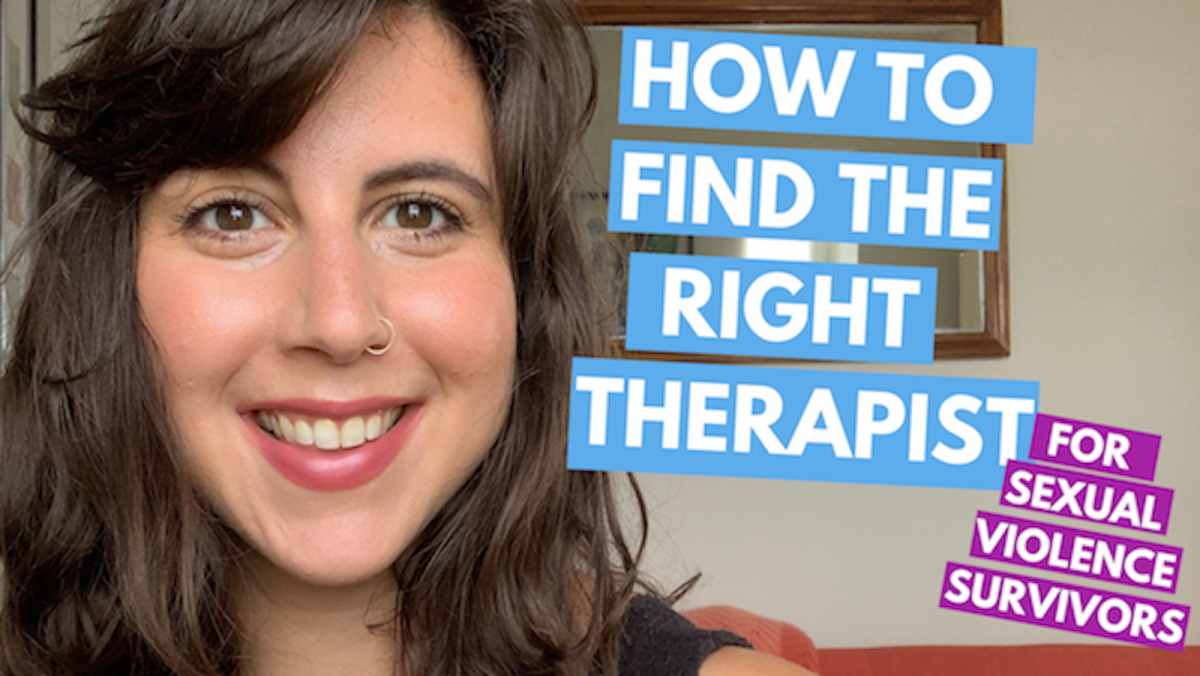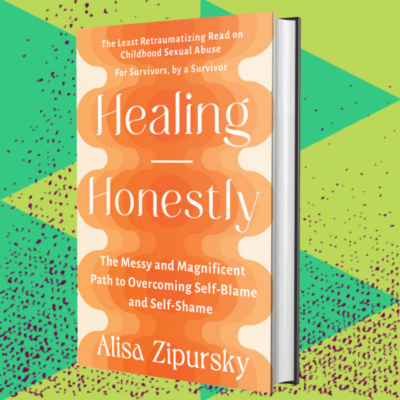This story may contain descriptions of the effects of trauma.
I have been in and out of therapists’ and psychatrists’ offices since I was 10-years-old, and believe you me, I’ve learned some things. It has felt so good to be able to offer my insights to others as I’ve helped them find a therapist, and now it is my pleasure to share those strategies with you all. Finding a therapist can suck, like, a lot. If it is sucking it doesn’t necessarily mean it’s wrong for you, I think it sucks for most of us, especially when we are dealing with sexual trauma and re-traumatization, therapists trying to make us remember abuse, or simply not “getting it”. But hopefully after reading or watching this you’ll feel a little less overwhelmed and a little more in control of the process.
You can watch my youtube video on it here, or read about it below!
What I’m offering is survivor-to-survivor support, some tips that I’ve learned along the way that has helped me to find what I really needed. Two important caveats while we get started:
- Therapy is not nearly as accessible as it needs to be in this country. There are huge financial, cultural, logistical barriers to accessing therapy and unfortunately, it is a privilege right now in this country, opposed to as it should be, which is as a right.
- Talk therapy isn’t for everyone and that’s totally cool. Talk therapy has been really about valuable and helpful for me in my life. But other people find healing in other forms of therapy, whether it’s EDMR or hydrotherapy, and I support you in finding whatever is your therapeutic experience that helps you in healing from sexual trauma.
Strategy #1: Find an accountability buddy and ask them to help you in finding a therapist
My first strategy is to find an accountability buddy and ask them for help to support you on your healing journey. When I had to find a new therapist two years ago, because my old one retired, I asked a friend for help, to make the phone calls to my insurance company, to call new therapists, sometimes she would even make the phone calls for me while I sat next to her.
I had her check in with me every week to see how my progress was going and to help me hold myself accountable to make sure that I follow through in finding the right person, because it can be really difficult and isolating to go through this process alone. And everybody could use a little help. Don’t forget, our friends love when we tell them exactly what we need in terms of support.
Strategy #2: Think of finding a therapist like blind dating
My second strategy is to think of finding the right therapist like blind dating, which may make it seem even less appealing, but it’s helpful to have the expectation that the first person you meet might not be the right therapist for you and that it’s a completely reasonable to shop around until you find the right one that is. I interviewed five therapists before finding the one that I’ve been working with for the past two years.
Now, that can require a lot of financial and logistical support, but if you can swing it, it really is so helpful. Because there isn’t that pressure to be like, oh, if this person doesn’t feel safe and good to me, then there’s no one else. The more people you meet, you can really compare and contrast them, and then it can become abundantly clear to you who is the person that you feel like you could have a healthy therapeutic relationship with.
Don’t feel guilty at all about doing this, in terms of the feelings of the therapist, they’re totally accustomed to this and they are trained not to take any of this personally. So let go of any guilt that you might feel that you’re just like only seeing them once and then not making a second appointment with them, it is totally normal and totally cool.
Strategy #3: Come ready with questions, you’re interviewing them
My third strategy is to come ready with questions. Some therapists will let you ask questions to them over the phone before you even meet them, which is great because it saves you time and energy. Some therapists won’t talk to you over the phone and insist on talking in person and that’s totally normal as well.
Some of the questions I ask possible therapists:
Q. Are you a trauma-informed therapist?
Q. What does it mean for you to be trauma-informed?
Q. Have you worked with other childhood sexual abuse survivors like myself?
Q. Do you think it’s important for me to talk about my past and try to remember things about my past, or are we going to focus more on the present right now? The question can be really revealing because that can be a really different strategy for different therapists. What helps me most is therapy that focuses on the present and not on my past. Whatever those questions are for you that are really important to you, feel totally empowered to ask them.
Q. My favorite question to ask is whether or not you would give me advice, because some therapists are like, “No, I would never.” They’d be like, “No, I’d ask you why you’re asking me that.” Some therapists are like, “Yeah, sure, I’ll give you advice.” That can be a question that gives you a lot of information about them really quickly.
Also pay attention to whether or not they’re allowing you to interview you anyway. There was one therapist that I had that would not let me get a single question in. When I tried, she kind of laughed at me and belittled my questioning as though it wasn’t what we were doing here. While it was a really uncomfortable experience, I realized that it was really helpful because it showed me like instantly, that this wasn’t somebody that I was going to have an equal therapeutic and healing relationship with, and it gave me the information I needed to be like, “Okay, next.”
Strategy #4 Check out your local rape crisis centers
My fourth strategy is to look at your local rape crisis centers. It’s amazing that there are thousands of rape crisis centers all across the country, in so many different communities and they are excellent resources, not just for when somebody is in crisis in that moment, but also in terms of long-term healing.
I have an amazing rape crisis center that’s local to me, which is the DC Rape Crisis Center. And they offer lots of therapeutic services for people who are members of the community, whether or not they’ve ever accessed the support from the center before. The people who work there are super experienced in working with sexual trauma survivors.
I definitely recommend reaching out to your rape crisis center, seeing if they do offer therapeutic services that you might have access to, especially because those are often on a sliding scale and much more affordable than private therapists. If they don’t have people, ask them for recommendations, because they’re very likely going to know who in the community is a trusted person who a lot of survivors go to and find supportive.
Strategy #5 Listen to your gut
My fifth and final strategy is to remember to listen to your gut over your mind. So often, as survivors, we’ve trained ourselves to not get to listen to those gut feelings that tell us when we’re safe or not. Because we were going through some really terrible stuff. But now in our healing, we’re allowed to call the shots and we’re allowed to say, “Listen, this is when I feel safe, this is when I don’t.” We get to let that actually be our guide in decision-making processes.
Even if a therapist looks great on paper, if, for whatever reason, you really don’t feel safe and comfortable with them, I ask you to give yourself permission to listen to those voices, because that in and of itself, can be really healing.
Remember that I am here with you every step of the way on this journey, and if it feels really hard finding the right therapist, just know that you’re not doing anything wrong.
It is just, unfortunately in our country, it can be really difficult to find the right therapeutic relationship for ourselves. But know that you’re not alone in feeling that way and you deserve every support that you want in your healing. You’re worth it.


